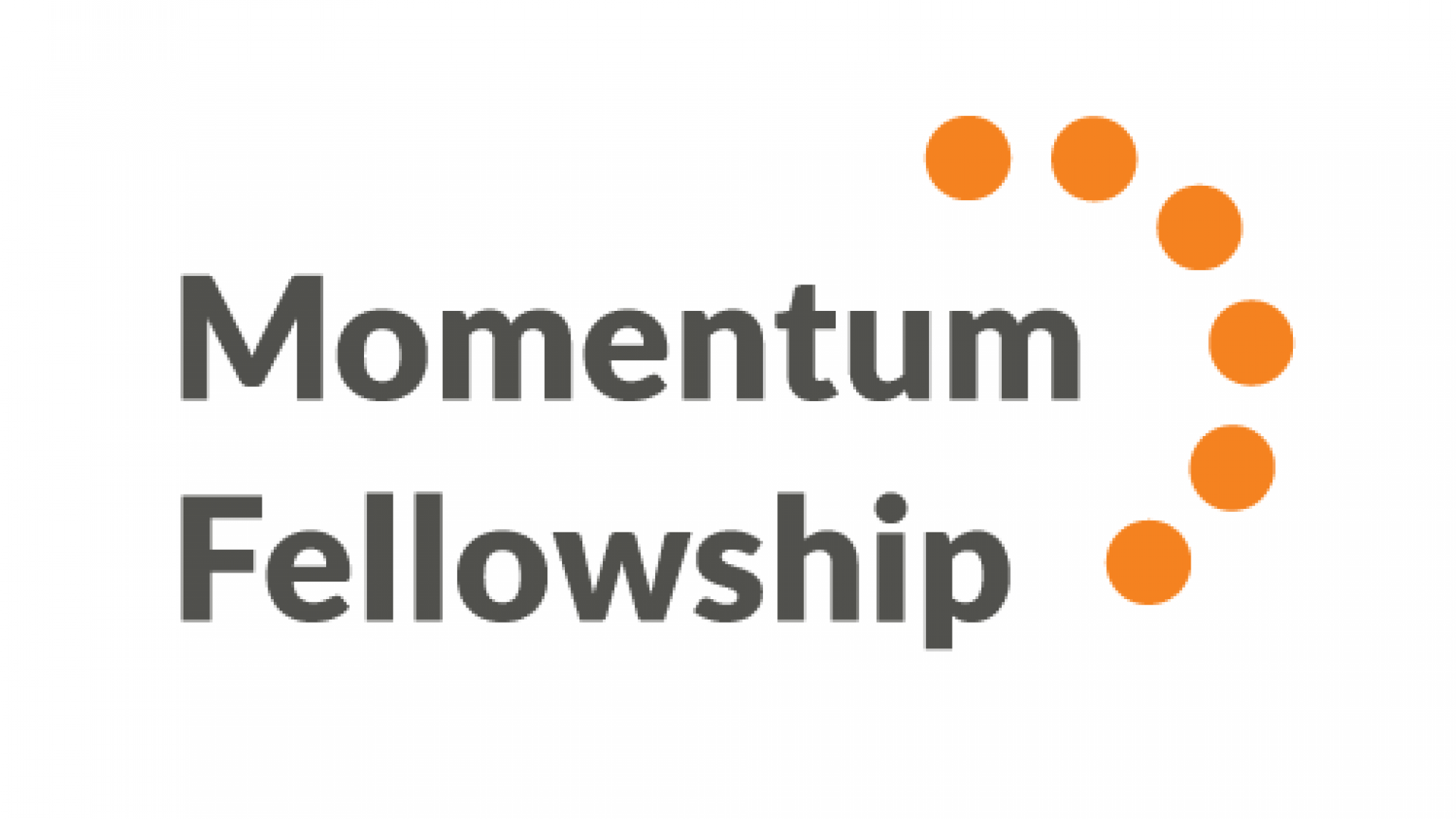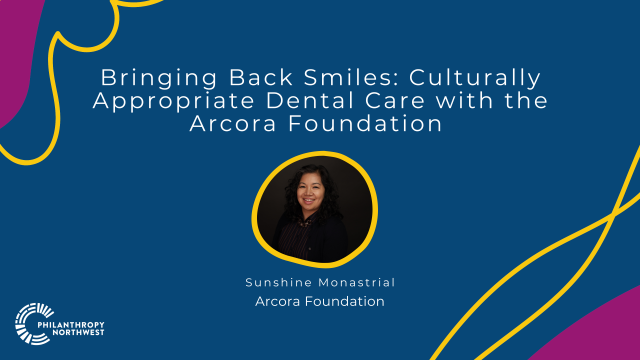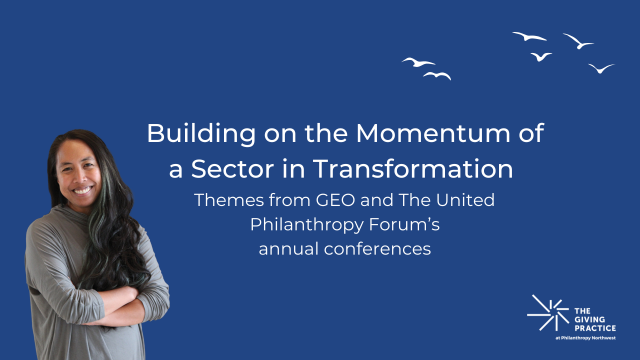
Nicole Neroulias Gupte, Communications Manager
Seven months after we first met our inaugural cohort of Momentum Fellows, a group of emerging leaders working to advance diversity, equity and inclusion in philanthropy, we continue to be blown away by their insights on our blog and in the field.
Leaders at their host foundations — Marguerite Casey Foundation, Northwest Health Foundation, Meyer Memorial Trust, Oregon Community Foundation, Pride Foundation and Rasmuson Foundation — have also expressed great excitement with this work, which developed out of our first CEO cohort on diversity, equity and inclusion.
Before their April meeting at Marguerite Casey Foundation, we asked each of the nine Momentum Fellows to share their thoughts on this prompt:
What have you learned about diversity, equity and inclusion (DEI) in philanthropy since becoming a Momentum Fellow — and what do you hope to learn/achieve in the rest of our time together?

Marcelo Bonta: Foundations were created to serve nonprofits, not nonprofits to serve foundations. The power dynamic is out of whack. It is from this place of power, privilege and elitism that most foundations are blinded to the inequities they create, from the way they invest their money to how they operate and make decisions. Inequity will continue to bleed from philanthropy until this changes. Doing nothing on the equity front means you are creating more inequity. (I have learned that the very existence of many foundations is causing more inequities than equities.) But there is hope. I am fortunate to work for a foundation, through self-critique, that is using its power, privilege and resources to create more equity. From the way Meyer Memorial Trust is shifting its investments, policies, practices, staff and board make-up, we are one of a growing number of foundations paving the way to flourishing and equitable world. It’s time for change. I look forward to helping usher in that inevitable change.
Janelle Choi: Marguerite Casey Foundation CEO Luz Vega-Marquis recently co-authored a Chronicle of Philanthropy op-ed, “Philanthropic Leadership Shouldn’t Still Look Like a Country-Club Set.” From Black Lives Matter and #OscarsSoWhite to Syrian refugees and giant border walls, our political and civic discourse of late has focused on who’s included and who’s excluded from key segments of society. In our relatively protected, bubbled existence in philanthropy, the time is ripe to probe these questions. Who's included? Who's excluded? Who belongs? Who's marginalized? Does philanthropy reflect and serve the diversity of our nation? The Momentum Fellowship has provided an opportunity to dive into this material and I’m excited to hear from Kelly Brown in the next few days regarding the D5 Coalition’s work to grow DEI in this field.
Sharon Wade Ellis: Because race is socially constructed, it promulgates a parallel socially-constructed institutionalized racial valuing system. This inequity can be depicted as an upside-down pyramid: high-value white dominant culture on top, low value black race placed on bottom, and other races placed somewhere in between. Generationally, this has been reinforced by the dominant culture as truth, perpetuating the cycle of oppression! People of color internalize this relentless negative depiction and societal conditioning. The path to equity requires EVERYONE to reject the lies connected to what they’ve been conditioned to believe as truth about themselves, and about people different than themselves.
Eduardo Moreno: Organizations (not just select individuals) need to commit to continuously learning, understanding and adapting to the community we serve in order to advance and support diversity, equity and inclusion across the region. Over the next several months, I hope to have a clearer understanding of how Momentum Fellows will serve to advance and support DEI work in our respective host organizations and communities.
Katherine Porras: Meyer Memorial Trust’s commitment to equity is paramount. In looking forward, there is an opportunity to address DEI issues in philanthropic asset management. I would love to be part of the team that works on this issue. At the same time, as a woman of color, I would like to excel as an investment professional in philanthropy.
Liz Posey: I was incredibly inspired by our conversation with Northwest Health Foundation CEO Nicole Maher. She shared the incredibly thoughtful and bold work she and her board have done to align their grantmaking strategy to match the clearly documented health disparities. Aligning the board and staff to look like the communities disproportionately impacted and then following that with a funding strategy emphasizing organizations led by people of color and organizations that have authentic partnerships with communities of color. Additionally, she employs creative strategies to change the policymaking incentives and fosters multiracial coalitions and relationship-building to empower communities color.
Kelsey Potdevin: There’s a clear lack of diversity in the philanthropic sector. This is changing, but in reality we’re just getting started with incorporating diversity, equity and inclusion in a holistic and lasting way. The eight other Momentum fellows routinely give me confidence that we will accelerate this transformation. The opportunity to build relationships with my cohort and take advantage of professional development opportunities has significantly enriched my experience as a fellow. I appreciate it. I hope we continue to delve into the crux of DEI issues and learn to incorporate it into our current roles as Momentum fellows and future careers.
Kim Sogge: I have learned that work around diversity, equity and inclusion in philanthropy doesn’t have an end point. It is an ongoing, transformative process that requires input, dialogue and contributions from all areas, levels and stakeholders. On a personal level, I hope to continue to learn from and grow alongside my peers and colleagues. I hope that we as a sector can continue to engage in this challenging work of putting equity at the center and remember that it has the potential to truly transform the world in which we live.
Dalian Yates: What I know and what I've learned about DEI is...
- DEI is progressive, it's about leadership taking risk, and it's a "game changer."
- DEI is not stagnant, simply a series of trainings or tokenism.
- What I want to learn in the future is how you get people, both individually and collectively, ready to do the work of DEI. How do you convince them? How do you get that "buy in?" Because only then, when you have that "buy in," that collective agreement, can the work of DEI truly move forward.
Visit the Momentum Fellows page for more information about each of our fellows, including blog posts about their personal and professional journeys.


